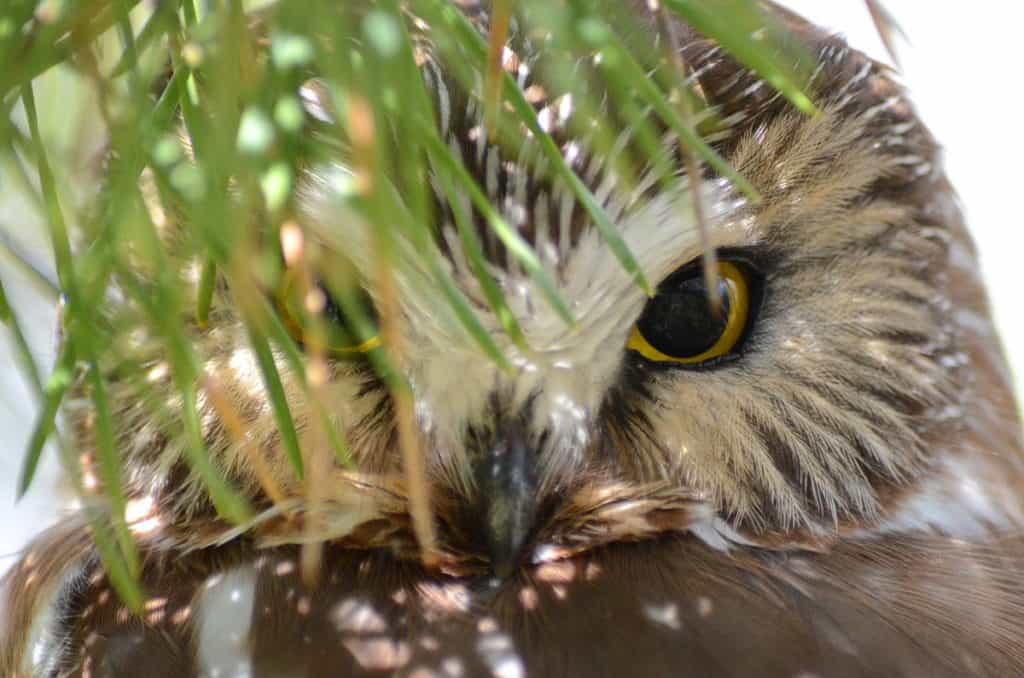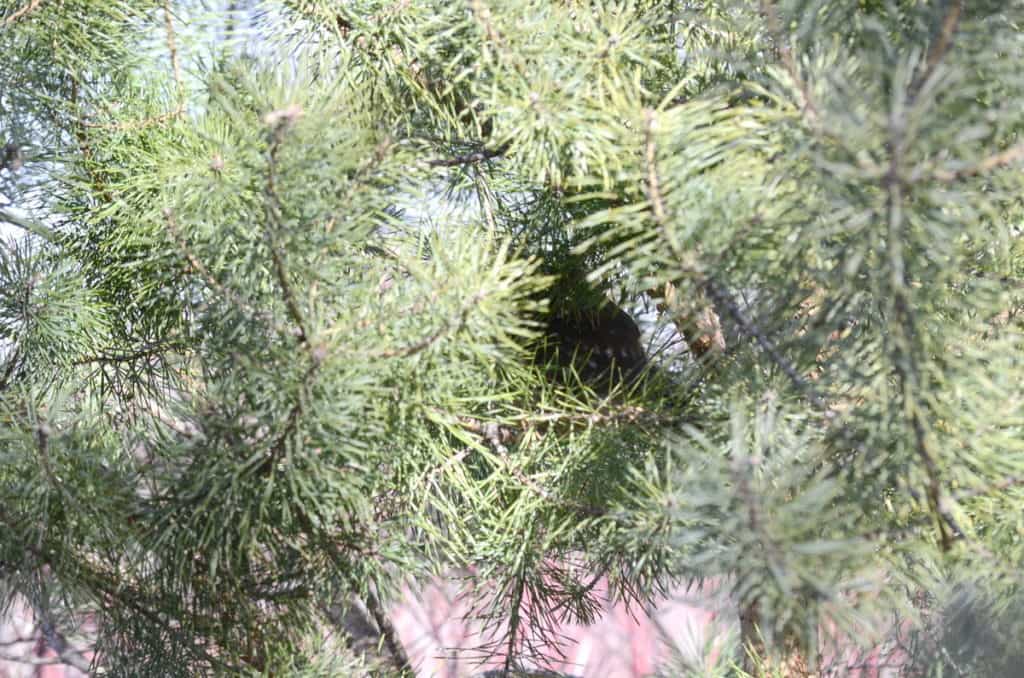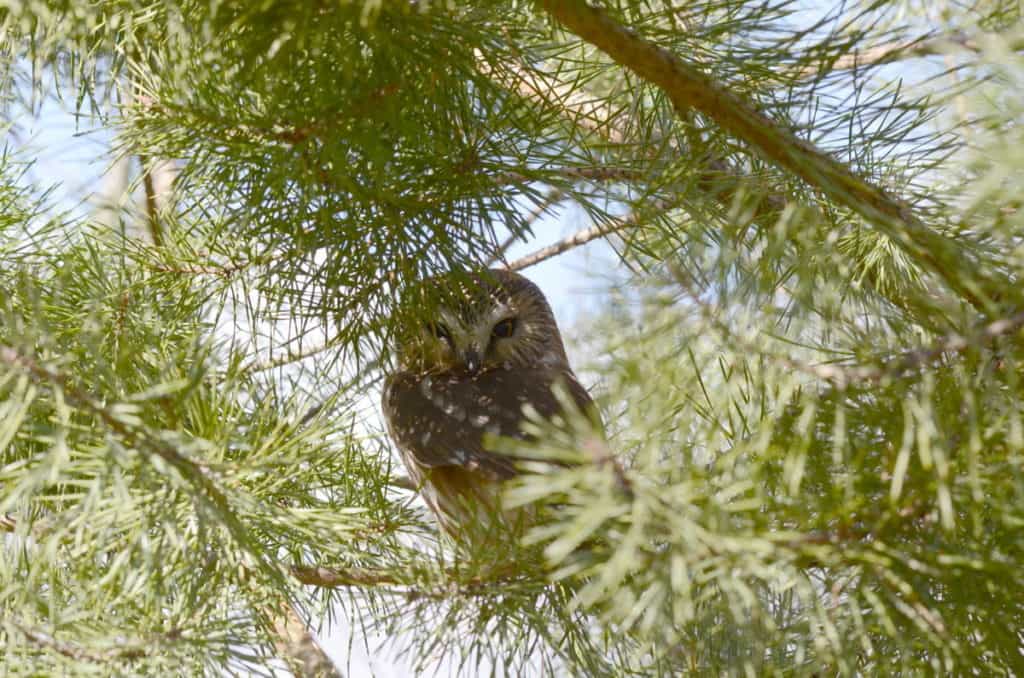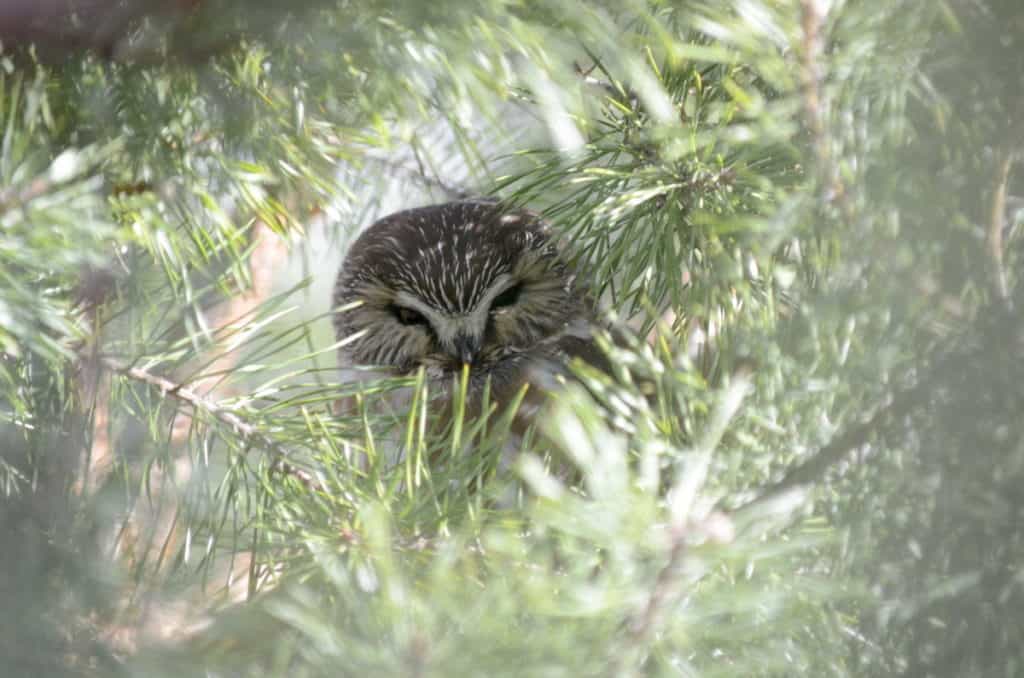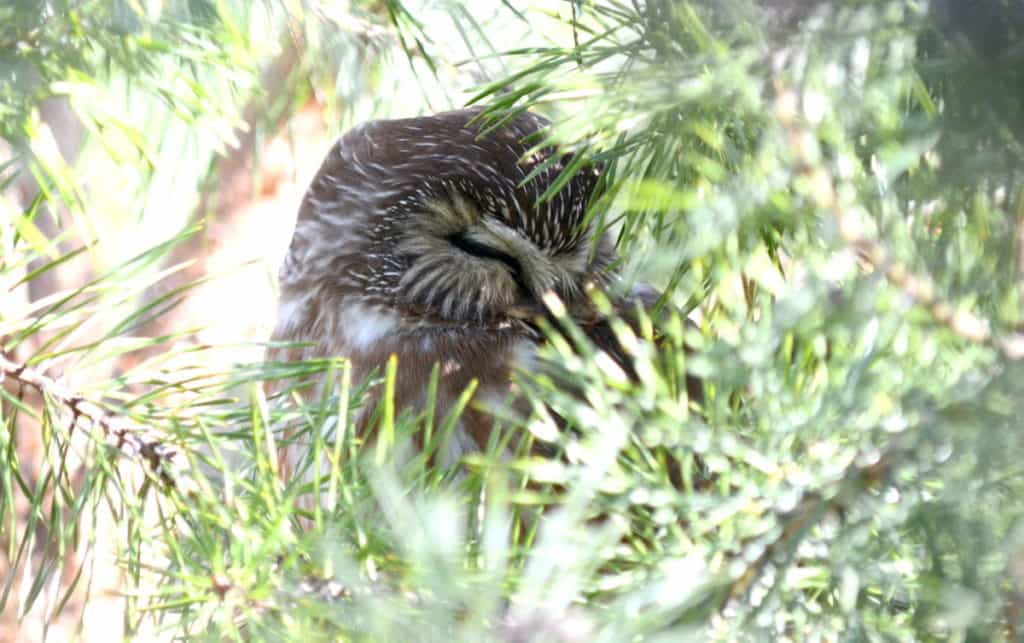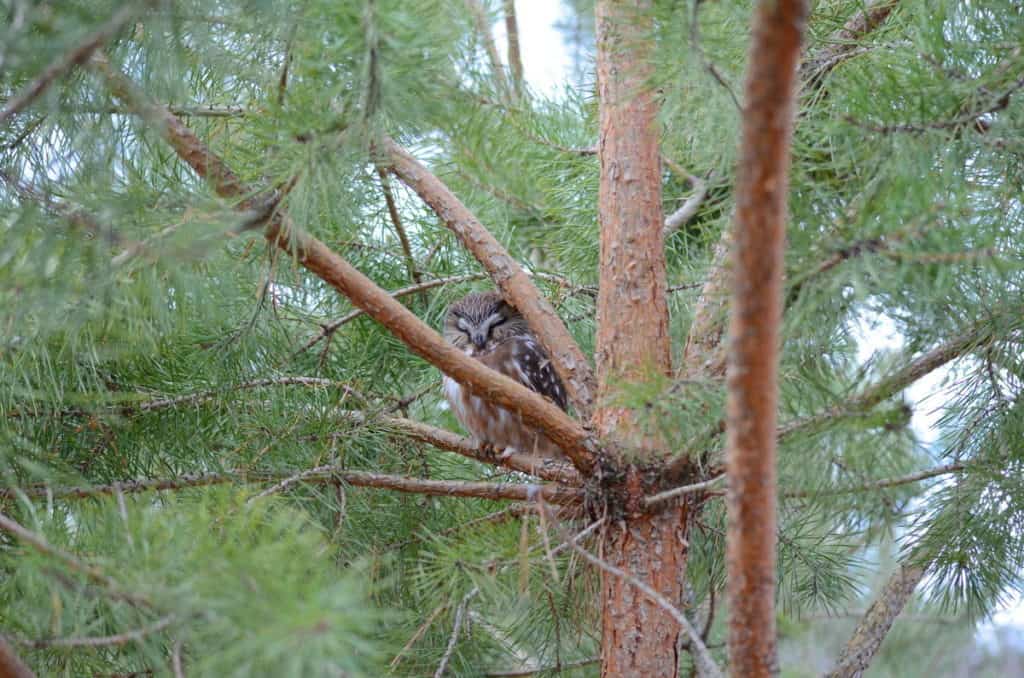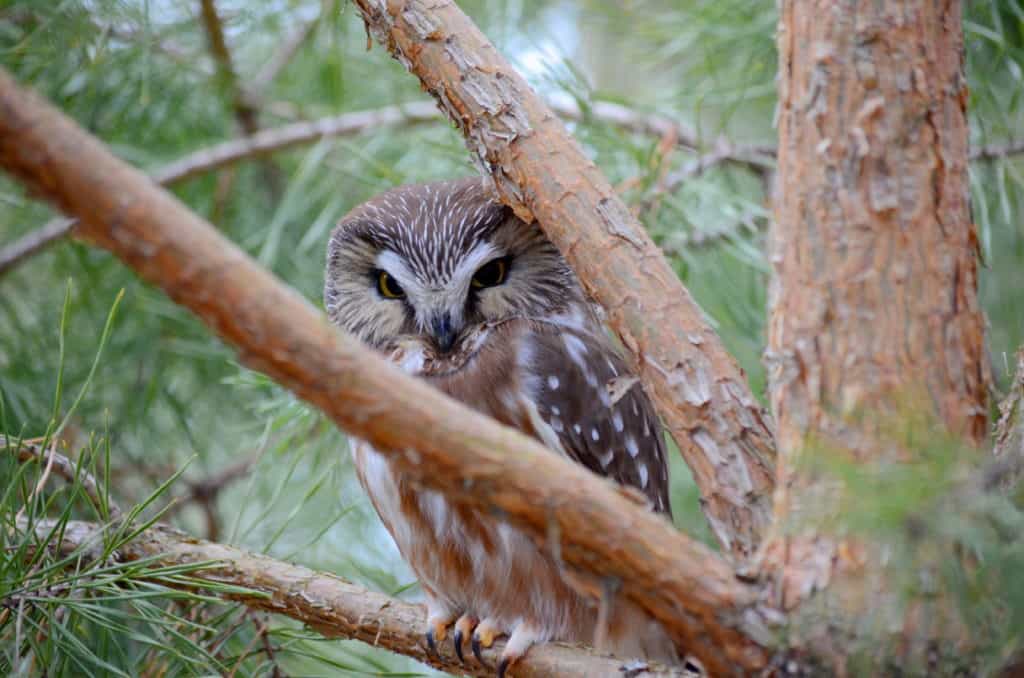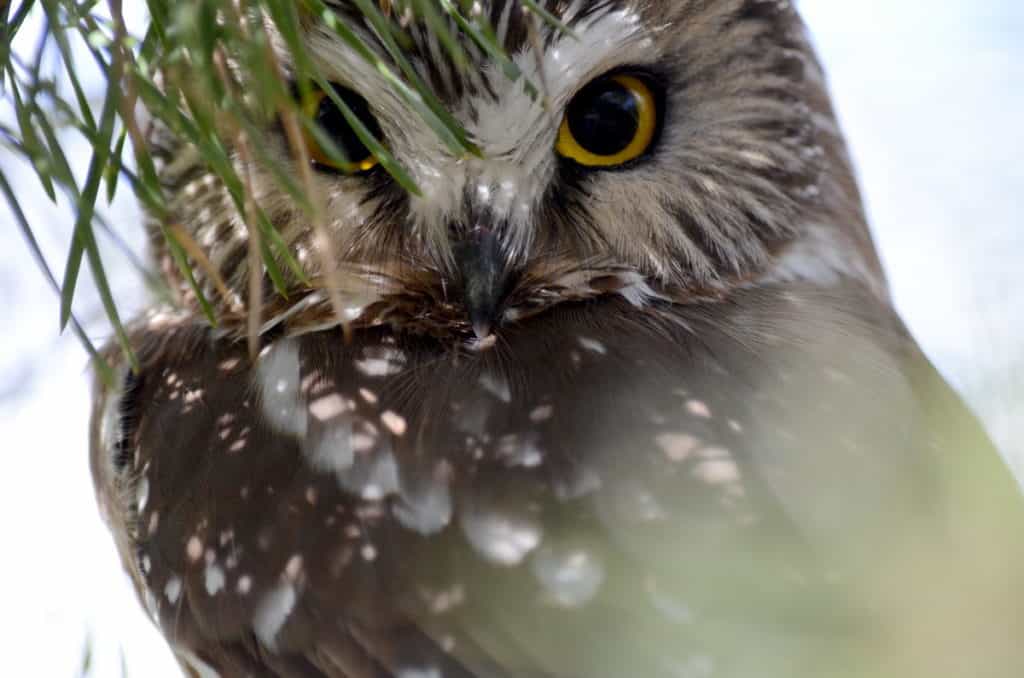Northern Saw-whet Owl Near Oshawa, Ontario
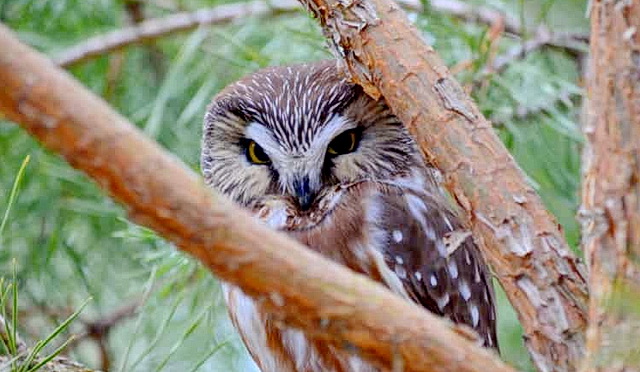
It had been several years since Bob and I came across a Northern Saw-whet Owl, the first time being in our local park in late October of 2012. It was that bird sighting that got us hooked on bird watching. It was a long interlude but not for lack of trying. Our patience and persistence finally paid off when we located this Northern Saw-whet Owl on a recent warm February day near Oshawa, Ontario.
We felt lucky to begin with when we arrived at the familiar location to scout for the Owl because no one else was around. Over the preceding months, many people had seen this particular Northern Saw-whet Owl, but less human activity on any given day means less chance of an Owl being spooked. No one said it would be easy to find the Owl because daily, it changes its tree of choice for its daytime roosting location. Multiple trips over last winter and this one denied us success. In fact, even this time, Bob walked right past the tree without noticing anything unusual.
Bob and I spread out to cover more ground, and as I scrutinized each and every tree, I do declare that, by times, I myself looked like an Owl as I bobbed my head this way and that to peak through the boughs. On my first walk-by this particular tree, I saw no telltale signs, but on a second pass from a different direction, I detected an uncommon denser mass near the end of one branch.
I had to bend down low to have a vantage point up through the pine needles, and that is when my heart leaped for I knew I was looking at the tiny form of a Northern Saw-whet Owl. I slowly retreated from the tree because Bob had wandered much further afield, and I wanted to draw his attention to it before other people arrived on the scene and disturbed the wee Owl.
The Northern Saw-whet Owl was really well hidden so that, even on that bright, sunny day, it did not stand out from the shadows of this young pine tree. It is absolutely necessary for the Owl’s survival to remain undetected because there are Great Horned Owls in the area that would snatch this little Owl up for a bite to eat in no time flat.
We were both relieved that the Northern Saw-whet Owl seemed relaxed and content to resume sleeping. It would need to conserve every ounce of energy during the day in order to pursue prey once dusk settled over the land. Bob and I left the Owl to wile away the day as we ventured further afield in search of other birds.
Other photographers and bird watchers did show up over the course of the morning, so Bob and I felt it our duty to check on the Northern Saw-whet Owl one more time before heading for home. Some wildlife photographers are far more interested in achieving the perfect photo than ensuring the safety of the wildlife they wish to photograph.
Sure enough, this Northern Saw-whet Owl had been disturbed, but thankfully, it only moved to another branch within the same young tree. To waste energy flying during daylight hours can cost an Owl its life if it is unsuccessful catching prey later in the day, and exposing itself could result in an Owl’s demise at the hands of a hawk or other bird of prey.
This little Northern Saw-whet Owl lived to see another day, and with any luck will survive until it is time to fly further north in time for breeding season. These adorable tiny owls, the smallest owls in Eastern North America, can’t help but melt your heart when they look at you with those big, bright yellow eyes. I know I felt blessed to see this one, and I sure hope it isn’t 5 years before I get a chance to see another.
Related:

